Shanzhao Qiu
Towards Effective Image Manipulation Detection with Proposal Contrastive Learning
Oct 16, 2022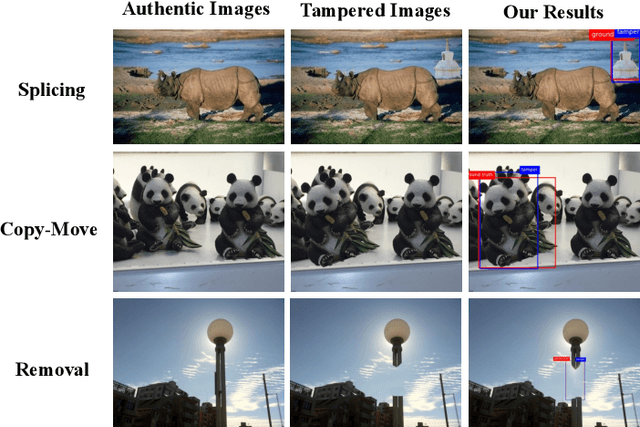

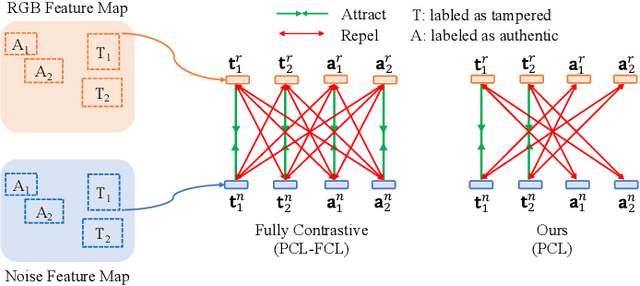

Abstract:Deep models have been widely and successfully used in image manipulation detection, which aims to classify tampered images and localize tampered regions. Most existing methods mainly focus on extracting \textit{global features} from tampered images, while neglecting the \textit{relationships of local features} between tampered and authentic regions within a single tampered image. To exploit such spatial relationships, we propose Proposal Contrastive Learning (PCL) for effective image manipulation detection. Our PCL consists of a two-stream architecture by extracting two types of global features from RGB and noise views respectively. To further improve the discriminative power, we exploit the relationships of local features through a proxy proposal contrastive learning task by attracting/repelling proposal-based positive/negative sample pairs. Moreover, we show that our PCL can be easily adapted to unlabeled data in practice, which can reduce manual labeling costs and promote more generalizable features. Extensive experiments among several standard datasets demonstrate that our PCL can be a general module to obtain consistent improvement.
PILC: Practical Image Lossless Compression with an End-to-end GPU Oriented Neural Framework
Jun 10, 2022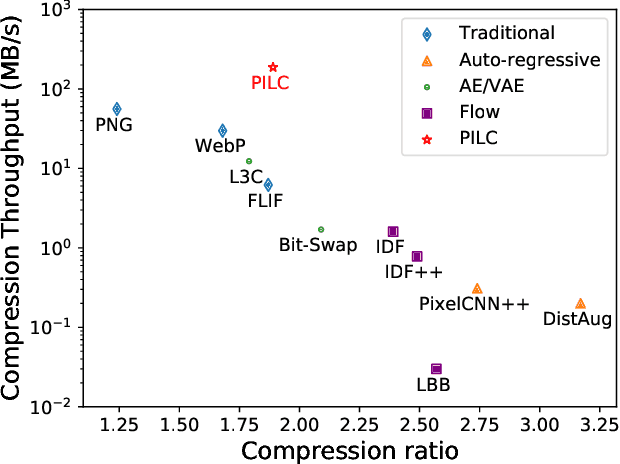
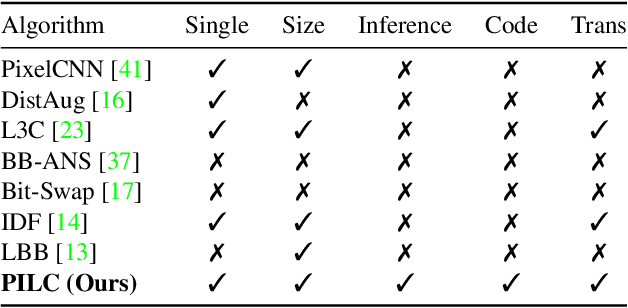
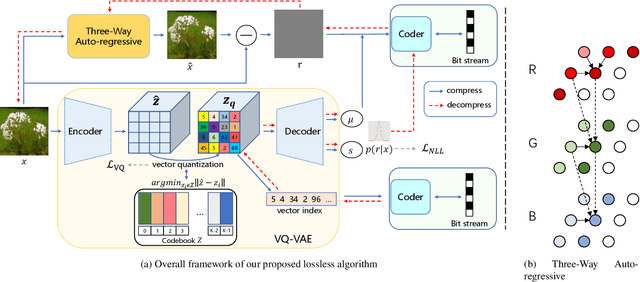
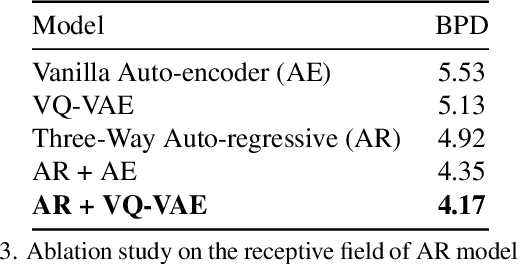
Abstract:Generative model based image lossless compression algorithms have seen a great success in improving compression ratio. However, the throughput for most of them is less than 1 MB/s even with the most advanced AI accelerated chips, preventing them from most real-world applications, which often require 100 MB/s. In this paper, we propose PILC, an end-to-end image lossless compression framework that achieves 200 MB/s for both compression and decompression with a single NVIDIA Tesla V100 GPU, 10 times faster than the most efficient one before. To obtain this result, we first develop an AI codec that combines auto-regressive model and VQ-VAE which performs well in lightweight setting, then we design a low complexity entropy coder that works well with our codec. Experiments show that our framework compresses better than PNG by a margin of 30% in multiple datasets. We believe this is an important step to bring AI compression forward to commercial use.
 Add to Chrome
Add to Chrome Add to Firefox
Add to Firefox Add to Edge
Add to Edge